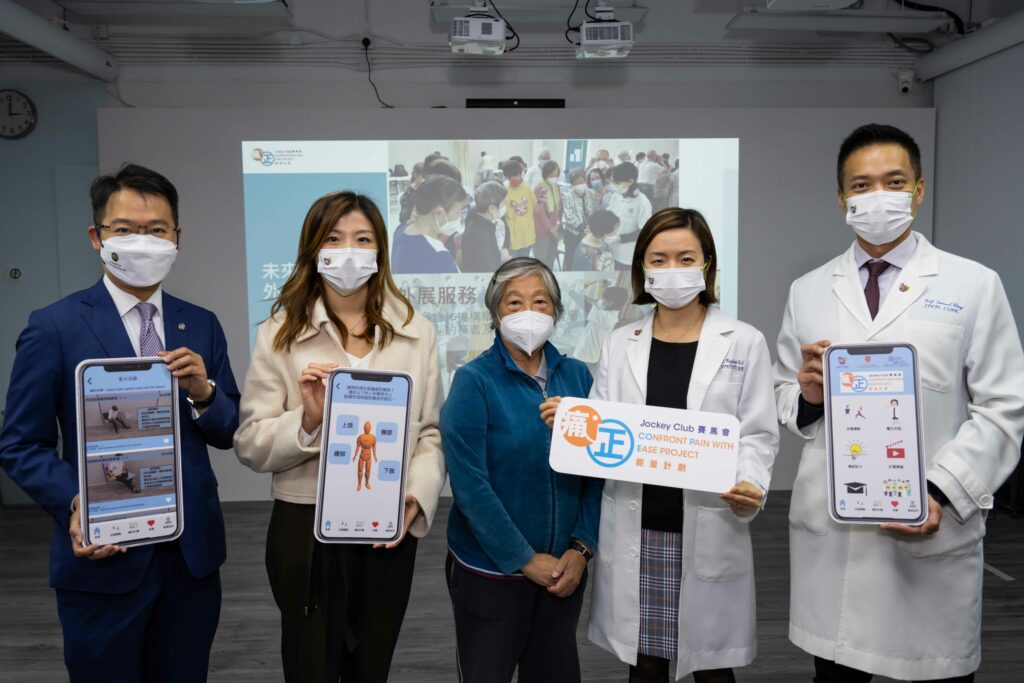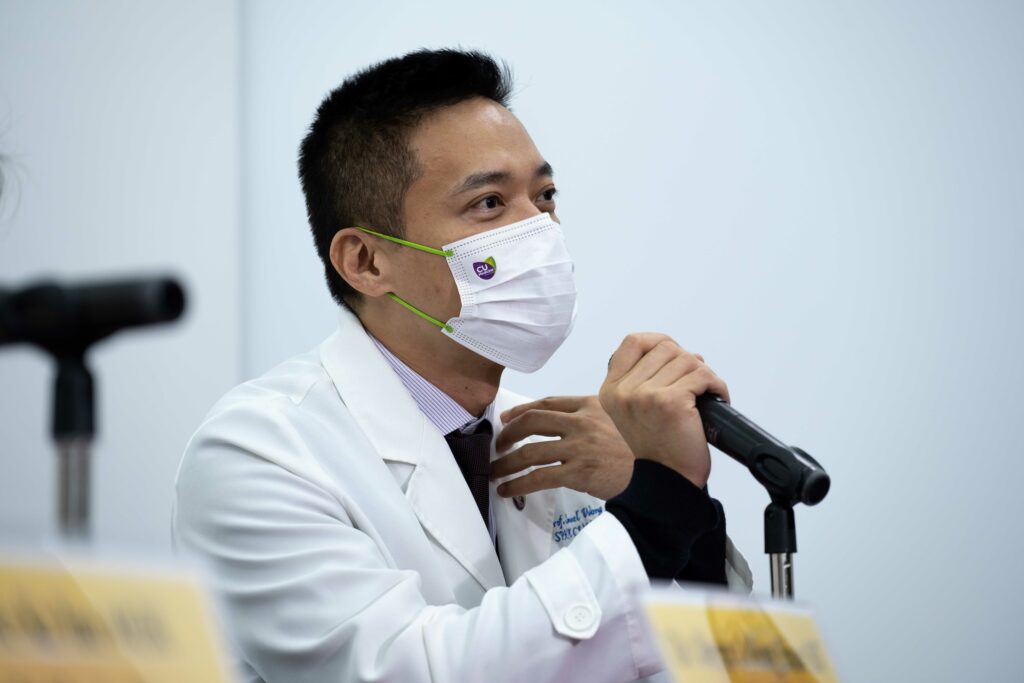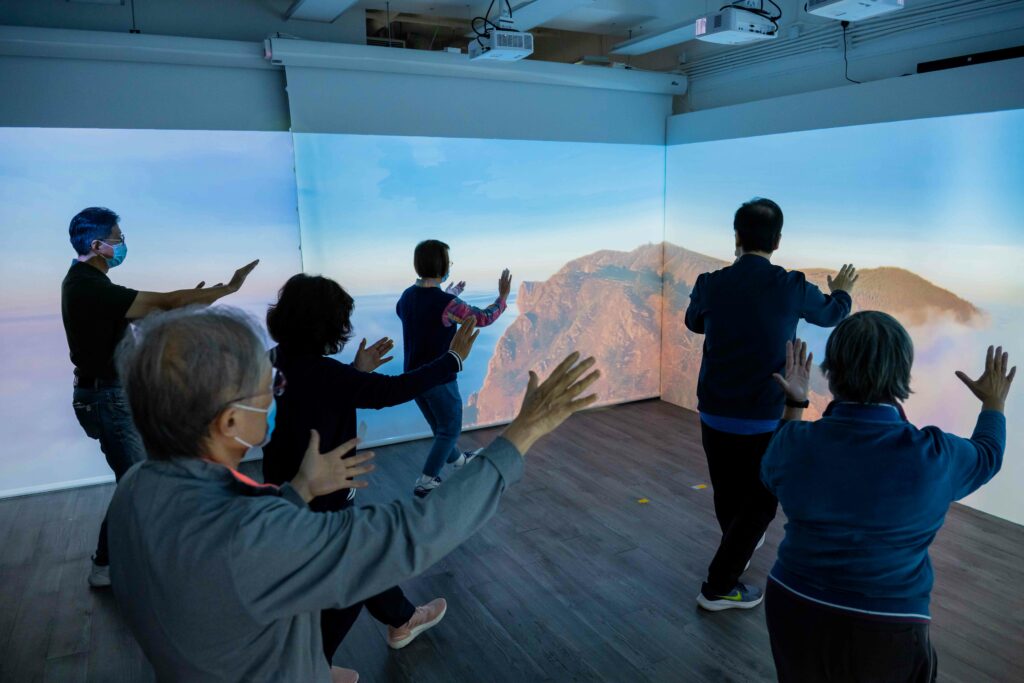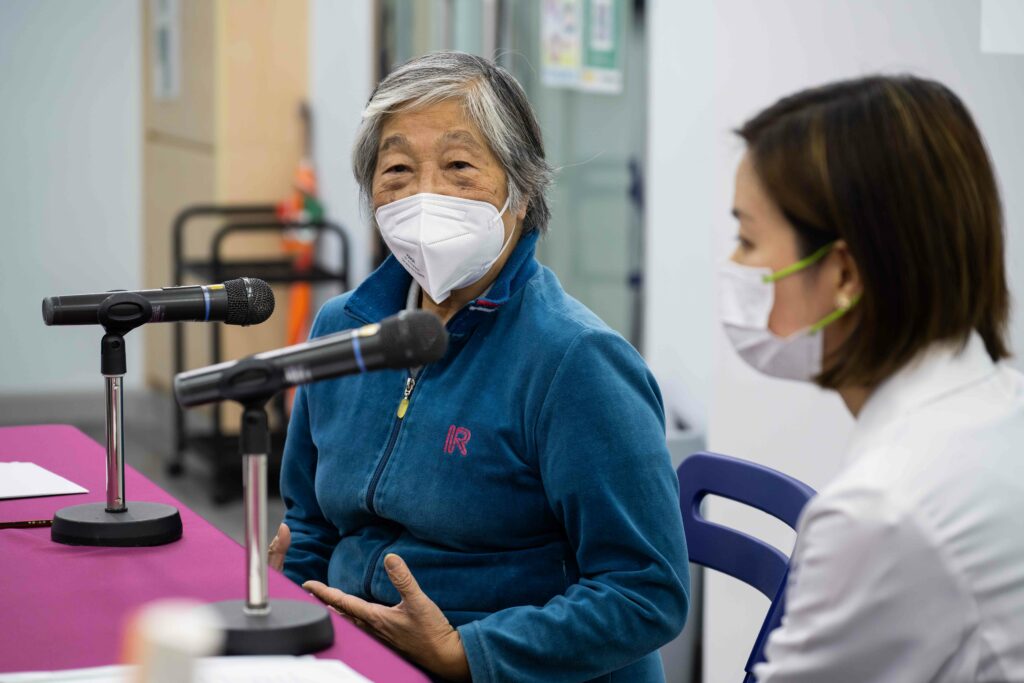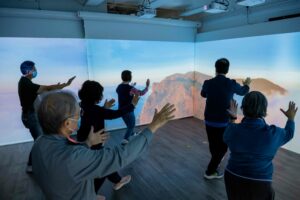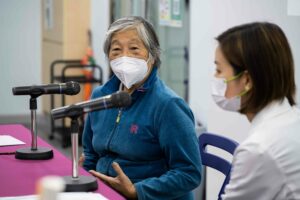CUHK
News Centre
CU Medicine launches the Jockey Club ‘Confront Pain with Ease’ Project Introducing innovative pain interventions and self-help measures to the community
The Jockey Club School of Public Health and Primary Care at The Chinese University of Hong Kong (CUHK)’s Faculty of Medicine (CU Medicine) was funded by The Hong Kong Jockey Club Charities Trust with the total amount of HK$18 million this year to establish a three-year primary care programme, the Jockey Club “Confront Pain with Ease” Project (JC-COPE). It aims to develop evidence-based pain care models in primary care and facilitate their effective dissemination and implementation in the community. The project is also pioneering the use of digital resources in chronic pain management.
Develop evidence-based pain care models and training, and disseminate them to local NGOs
Chronic musculoskeletal pain is a common symptom in ageing populations, with varying levels of functional, psychological and social impairment. Data from the World Health Organization (WHO) shows that one in five adults suffers from chronic pain (excluding cancer patients). A multidisciplinary CUHK team has been conducting research and offering services in the community since 2019 to promote non-pharmaceutical pain management measures.
Professor Samuel Wong Yeung-shan, Director of the Jockey Club School of Public Health and Primary Care at CU Medicine, said, “Our primary care pain team was grateful to receive a donation from HKJC in 2019 to launch a pain relief project for seniors. The project has served over 20,000 participants in three years. After the satisfactory outcomes, The Hong Kong Jockey Club Charities Trust provided us with further support to launch JC-COPE project as a second phase this year, which targets strengthening the accessibility of pain care services in the community through NGOs and innovative pain interventions for younger patients. Our current NGO collaborators include Christian Family Service Centre, The Hong Kong Society for the Aged and H.K.S.K.H. Lady Maclehose Centre.”
Dr Regina WS Sit, Director of JC-COPE project and Associate Professor of Practice in Family Medicine of the Jockey Club School of Public Health and Primary Care at CU Medicine, remarked, “Through the service provision in the first phase of our pain relief project, we identified the demand for different pain care services, and that access is crucial for health service utilisation. Therefore, we propose a three-year project to enhance the reach of pain services in the community through the well-developed network of NGOs in Hong Kong. Based on clinical evidence and research excellence, we have developed different pain care models and provided operational manuals and training programmes to the NGOs, so they can provide pain care services to targeted participants.” She added that the project would recruit a team of pain ambassadors to promote musculoskeletal health and provide outreach in the community.
Pioneer the use of digital tools in pain management and evaluate outcomes
Digital tools and social media are easily accessible platforms to disseminate health knowledge and promote behavioural changes. The JC-COPE project will introduce a mobile app that provides online health information and videos on pain knowledge and skills for exercises and relaxation therapies at home.
The project has also set up an experimental Virtual Reality (VR) laboratory for group-based physical and mental therapies, conducted by board-certified professional instructors including physicians, nurses, physiotherapists, psychologists and counselling assistants.
Dr Sit explained, “VR creates a sense of presence in an immersive, computer-generated, three-dimensional, interactive environment. Its application has been expanded to a variety of clinical areas, such as stroke rehabilitation and psychotherapy. Recently, the role of VR as an adjunct in pain medicine has been used to manage pain and distress caused by a wide variety of medical procedures.”
The project team will use both qualitative and quantitative measures to evaluate the outcomes of pain care models and digital tools, providing more insights into better pain management.
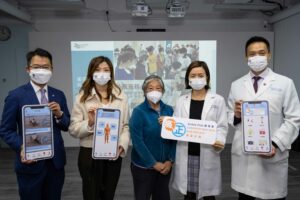
The Jockey Club School of Public Health and Primary Care CU Medicine was funded by The Hong Kong Jockey Club Charities Trust to establish a three-year primary care programme, the Jockey Club “Confront Pain with Ease” Project (JC-COPE) which aims to develop evidence-based pain care models in primary care and promote to the community.
(From left) Mr Horace Lit, Executive Manager, Charities (Ageing and Elderly Care), The Hong Kong Jockey Club; Ms Joyce Mok, registered nurse and member of JC-COPE; Ms Ho, participant of JC-COPE; Dr Regina WS Sit, Director of JC-COPE and Associate Professor of Practice in Family Medicine and Professor Samuel Wong Yeung-shan, Director of the Jockey Club School of Public Health and Primary Care at CU Medicine.


